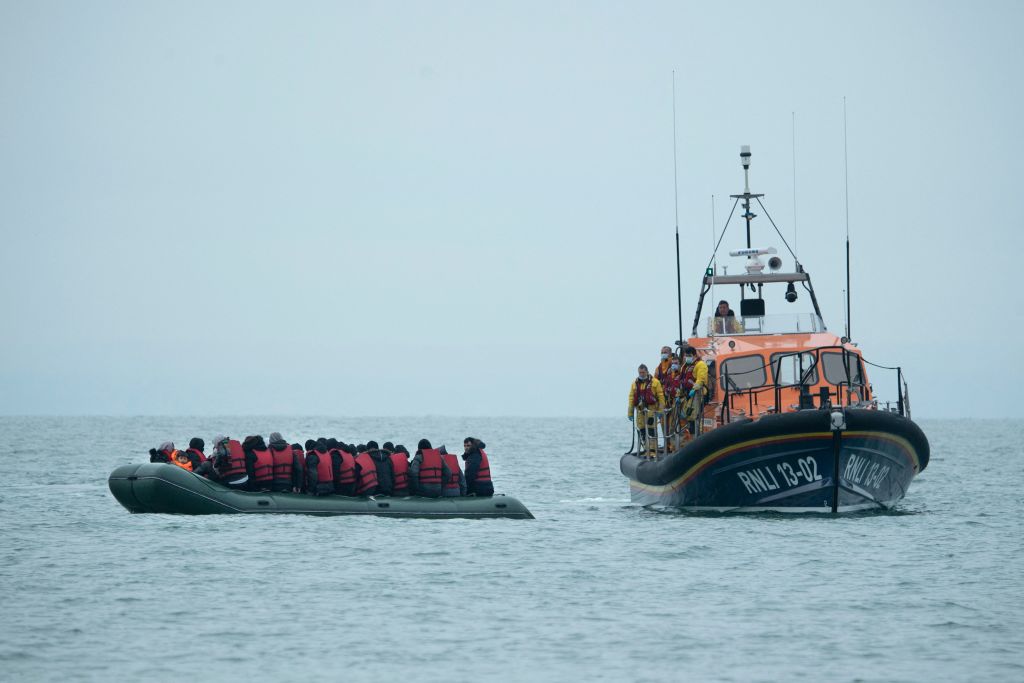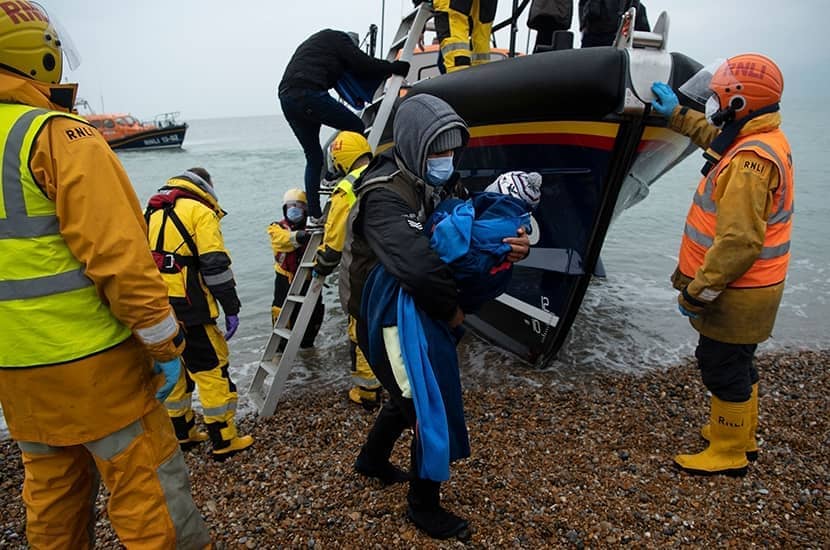One of this government’s favourite tactics is to act as if the beginning of its time in office was the general election of December 2019. This means it can dodge the usual charge against any party that has been in power for more than a decade: why haven’t you fixed the problem already?
Some problems, though, have clearly got much worse since December 2019. One of those is the situation in the Channel. Five years ago, pretty much no one was attempting to cross it illegally on a small boat. So far this year, more than 25,000 migrants have arrived via this route. Last month, 1,185 landed in one day: a new record.
The crisis poses a particular problem for the government for two reasons. First, Boris Johnson has made much of taking back control of Britain’s borders. The regular sight of people scrambling out of dinghies on beaches in Kent rather undercuts that claim. Secondly, Priti Patel has regularly claimed that if the Nationality and Borders Bill passes, the government will be able to solve the problem. If the crisis then continues, it will add to the sense that Johnson’s government talks big but doesn’t deliver. Keir Starmer has been plugging away with this criticism, highlighting how some government slogans — such as the manifesto promise that no one would have to sell their home to pay for care — aren’t what they are made out to be.
One normally optimistic minister doesn’t believe that the Nationality and Borders Bill can solve the Channel crossings problem. While the Bill streamlines the asylum system and means that those who arrive across the Channel are granted only a two-and-a-half-year stay in the UK, these changes alone won’t be enough to break the people smugglers’ business model. There will still be plenty of people prepared to pay thousands of euros to take the chance.

What ministers think is needed is a credible sense that people won’t be able to stay in Britain once they have made the crossing. One way to do that would be a returns agreement with France that would see people sent straight back. But even if Anglo-French relations were dramatically better than they are now, there would still be very little chance that this would happen. France receives more asylum claims than the UK — in 2020, there were more than 87,000 applications in France and more than 36,000 in the UK— and so it is unlikely that the French government would agree to a returns system that would bring it little benefit. Fundamentally, Britain will always care more about people entering its territory than France will about people leaving.

France is now proposing discussions on a UK/EU returns agreement. It is hard to believe that this wouldn’t come with a requirement that the UK assist with the EU’s asylum problem (the EU has close to double the number of asylum claims the UK has per head of population), something the government would be reluctant to sign up to.
For these reasons, ministers now place greater emphasis on the idea of offshore processing. The idea would be that asylum claims would be processed in a third country or a British overseas territory rather than on the British mainland. The theory is that this would make the prospect of the journey to Britain far less attractive.
Britain will always care more about people entering its territory than France will about people leaving
There will be a row about this idea as the Bill proceeds through parliament. David Davis, the backbench Tory MP, has already tabled an amendment opposing it: he thinks it will cost too much and ‘could inadvertently create a British Guantanamo Bay’. But it will be in the House of Lords that the idea will really run into trouble.
There are Johnson allies who think that a fight with the Lords over offshore processing might be no bad thing. They draw a parallel with the dispute with the Supreme Court over the prorogation of parliament in 2019 which had the effect of showing voters that Johnson really was serious about breaking the Brexit deadlock.
There is a crucial problem, though: the government doesn’t yet have anywhere lined up to host an offshore processing centre. Until it does, any argument with the Lords will seem performative. Those involved in these discussions are not upbeat about the prospect of finding a third country willing to agree to take on this task. (Papua New Guinea, which did this for Australia, has roughly half the GDP per capita of Albania, a country the UK government has tried to persuade to take on the role.)
Ministers increasingly think that a British overseas territory might be a more realistic option. But London can’t simply impose processing centres on overseas territories; they would have to agree to it. Again, this will be difficult — particularly as the number of people being processed would dwarf the population of many of these places.
The reason the small-boats route is suddenly being used so heavily is, in part, because of the success of the UK and French authorities in stopping people making the journey by lorry and the fact that Covid travel restrictions have made it far harder to reach Britain by air before claiming asylum. But for a government that has made so much of taking back control of the UK’s borders, these mitigating factors hardly solve the political problem it faces. Fifty–two per cent of Tory voters pick immigration as an important issue facing the country, more than any other subject.
The reality is that no domestic piece of legislation can solve the Channel-crossings crisis on its own. What’s required is a new international agreement on how to handle asylum claims. But the danger for the government is that it has raised expectations about how much it can do by itself and will end up disappointing its own voters on this issue.







Comments